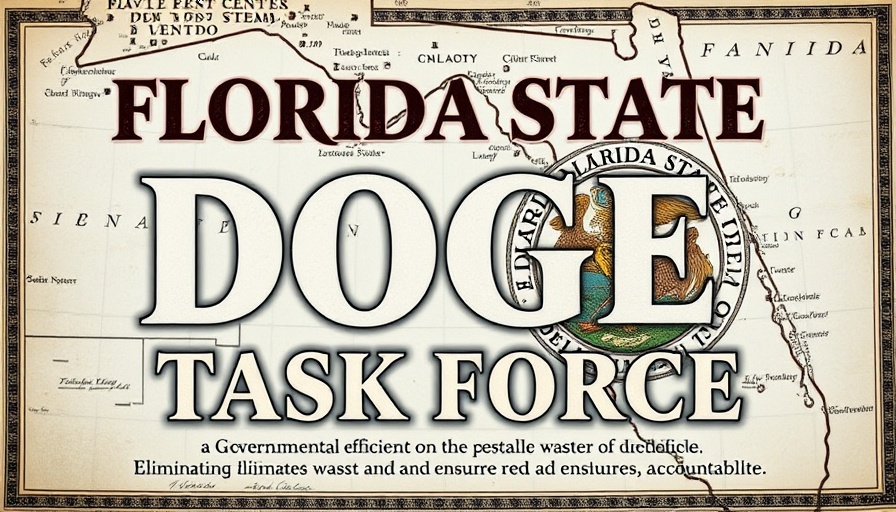
Florida’s Push for Government Accountability Takes Shape
In an ambitious move to curb government overspending, Florida Governor Ron DeSantis alongside state CFO Blaise Ingoglia, has initiated an audit of two Democrat-controlled municipalities—Broward County and Gainesville. This initiative, framed as a significant step towards promoting fiscal responsibility, is part of a broader strategy by the DeSantis administration to scrutinize the financial activities of local governments, particularly those perceived to be overspending taxpayer money.
Understanding the Fiscal Concerns in Broward County and Gainesville
Recent revelations indicate that Broward County has witnessed a staggering 50% increase in property taxes since the onset of 2020. The operating budget has ballooned to over $1.2 billion per year, even as the county's population growth has been minimal at around 5%. Governor DeSantis and CFO Ingoglia have pointed to this discrepancy as evidence of “reckless spending” and have pledged to investigate the local government's financial practices to ensure taxpayer money is used responsibly.
DeSantis and Ingoglia's Vision for Government Efficiency
DeSantis has positioned CFO Ingoglia as a key player in this initiative, dubbing him a “warrior” against waste in government spending. The duo aims to implement audits that not only spotlight existing financial issues but also pave the way for changes to progressive policies funded by taxpayers. This approach is indicative of a larger trend among Republican leaders who are advocating for stricter financial oversight in states with Democratic-led local governments.
The Impact of Rising Tax Burdens on Citizens
Taxpayers in Broward County are especially concerned about the growing financial burden. According to city officials, the average taxpayer has seen an additional $450 million in ad valorem tax collections over the last five years. This alarming statistic highlights the challenges families and individuals face under local government policies that some say prioritize expansion over efficiency. As the audits unfold, citizens and advocates are calling for transparency and accountability from their elected leaders.
Future Predictions: What’s Next for Florida's Local Governance?
Looking ahead, the audits could set a precedent for other Republican-led states. If successful, similar initiatives may spring up in other regions, influencing local governance nationwide. In an era where fiscal responsibility is increasingly being prioritized, the results of these audits could impact future elections, policies, and the political landscape in Florida and beyond.
Engaging Local Communities in the Audit Process
The role of community involvement in this audit process cannot be overstated. As these audits unfold, it will be critical for local residents to engage with the process, voicing concerns and demanding transparency. Community forums and town hall meetings may become essential tools for citizens to connect with local officials and provide feedback on government spending practices. Listening to constituents will be key in shaping a collaboration aimed at improving local governance.
Concluding Thoughts: Empowering Taxpayers
The ongoing push for audits in Broward County and Gainesville underscores a crucial moment in Florida politics that could redefine how local governments operate and engage with their constituents. With mounting pressure to address taxpayer concerns, DeSantis and Ingoglia’s actions represent a significant step towards greater accountability. Citizens should remain vigilant, advocating for transparency in their local governments and taking an active role in shaping policies that directly affect their tax obligations.
 Add Row
Add Row  Add
Add 



Write A Comment